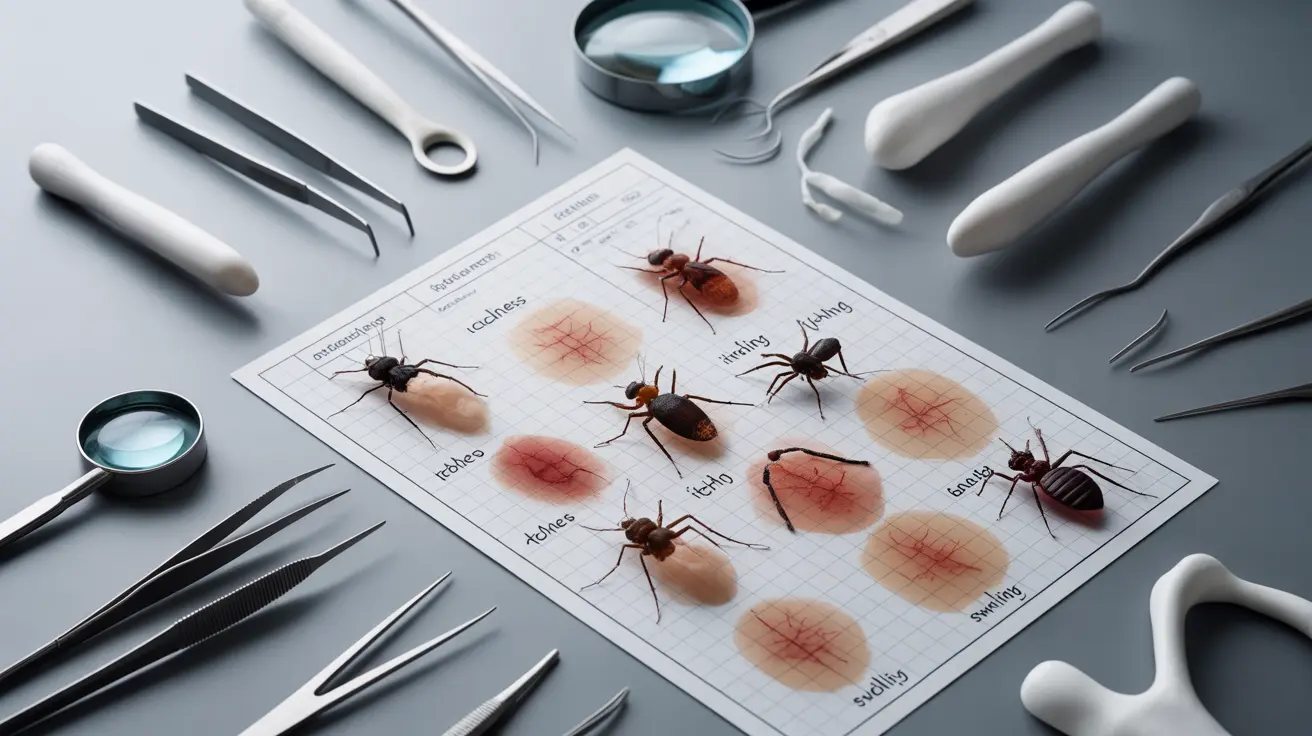Bug bites are a common occurrence, especially during warmer months when outdoor activities increase. While most bug bites are harmless and resolve on their own, knowing how to identify, treat, and prevent them is essential for maintaining your health and peace of mind. This comprehensive guide will help you understand different types of bug bites, their symptoms, and appropriate treatment options.
Common Types of Bug Bites and Their Symptoms
Different insects leave distinct bite patterns and symptoms that can help you identify the culprit:
Mosquito Bites
These typically appear as puffy, round bumps that itch immediately after the bite occurs. They usually form a small white and reddish bump within minutes or hours. Multiple bites may appear in a linear pattern.
Spider Bites
Most spider bites cause minor symptoms like red, swollen marks with mild pain. However, bites from brown recluse or black widow spiders can cause severe reactions and require immediate medical attention. Watch for a target-like pattern or intense pain at the bite site.
Bed Bug Bites
These often appear in clusters or lines of three or more bites, commonly called "breakfast, lunch, and dinner" patterns. The bites are typically red, itchy welts that may take several days to appear after the initial bite.
Treating Bug Bites at Home
Most bug bites can be effectively treated with simple home remedies:
- Clean the bite area with soap and water
- Apply a cold compress to reduce swelling
- Use over-the-counter antihistamine creams or oral medications
- Apply calamine lotion to relieve itching
- Take an oral pain reliever if needed
When to Seek Medical Attention
While most bug bites heal on their own, certain symptoms warrant immediate medical care:
- Difficulty breathing or wheezing
- Severe swelling of the face, throat, or tongue
- Rapid pulse or dizziness
- Spreading redness or warmth around the bite
- Fever or chills
- Severe pain or blistering at the bite site
Prevention Strategies
Taking proactive measures can significantly reduce your risk of bug bites:
- Use EPA-registered insect repellents containing DEET, picaridin, or IR3535
- Wear long-sleeved shirts and long pants when outdoors
- Avoid peak insect activity times (dawn and dusk)
- Remove standing water around your home
- Keep screens on windows and doors in good repair
Disease Transmission Risks
Some bug bites can transmit serious diseases. Mosquitoes can carry West Nile virus, Zika virus, and malaria. Ticks may transmit Lyme disease, Rocky Mountain spotted fever, and other infections. Being aware of these risks and taking appropriate precautions is crucial, especially in areas where these diseases are common.
Frequently Asked Questions
- What are the most common symptoms of different types of bug bites and how can I identify them?
Common symptoms include redness, swelling, itching, and pain. Mosquito bites typically appear as round, puffy bumps; bed bug bites often occur in lines or clusters; and spider bites may show a target-like pattern with more severe pain.
- How should I treat bug bites at home to reduce itching, swelling, and pain?
Clean the area with soap and water, apply cold compresses, use over-the-counter antihistamine creams, and take oral antihistamines if needed. Calamine lotion can help relieve itching, and oral pain relievers can address discomfort.
- When should I seek medical care for a bug bite, and what signs indicate a serious allergic reaction or infection?
Seek immediate medical attention if you experience difficulty breathing, severe swelling, rapid pulse, spreading redness, fever, or severe pain. These symptoms may indicate a serious allergic reaction or infection requiring professional treatment.
- What are effective ways to prevent bug bites when spending time outdoors?
Use EPA-registered insect repellents, wear protective clothing, avoid peak insect activity times, eliminate standing water sources, and maintain proper screens on windows and doors. These measures significantly reduce your risk of bug bites.
- Can bug bites transmit diseases, and which bites pose the highest risk?
Yes, certain bug bites can transmit diseases. Mosquitoes can spread West Nile virus, Zika virus, and malaria, while ticks can transmit Lyme disease and Rocky Mountain spotted fever. Mosquito and tick bites generally pose the highest risk for disease transmission.




